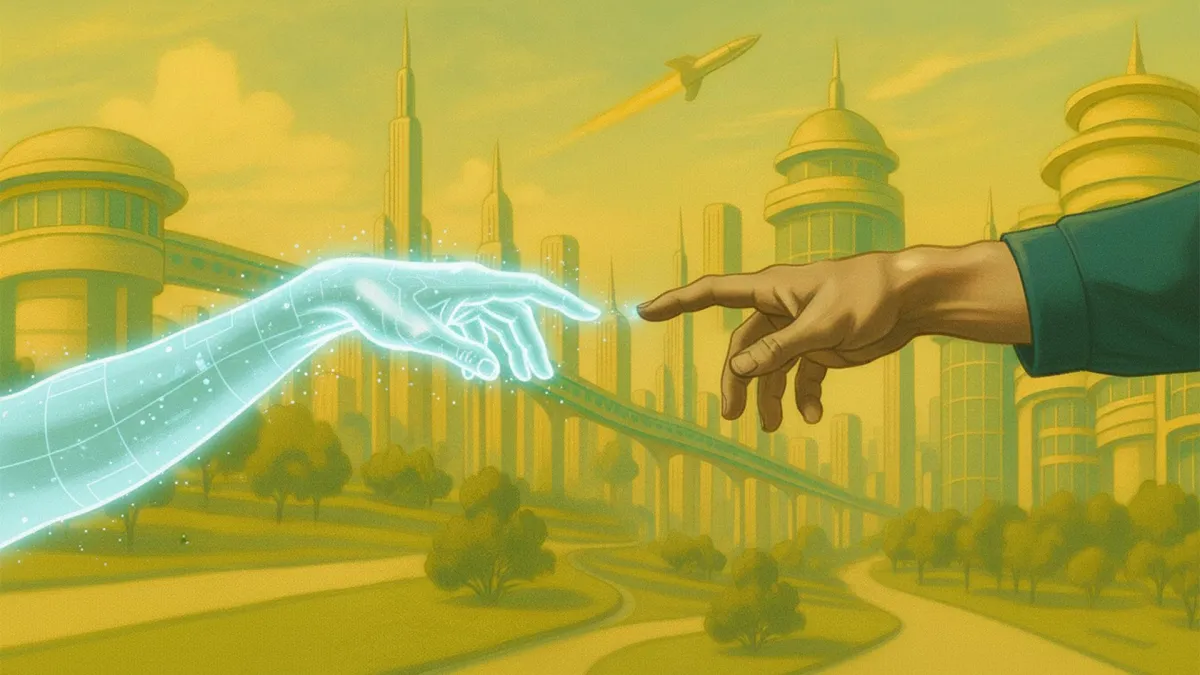
Where the Human Hand Ends
Where the Human Hand Ends
Every now and then, something wakes me in the early hours — an idea that doesn’t fade by morning.
This time it was simple: if Speculative Future going to stand for anything in the years ahead, I need to be clear about where the human hand ends, and where the machine begins. Not because I’m against AI, but because readers deserve to know the difference.
Our work spans essays, op-eds, visual futures, and cultural reflections — sometimes messy, often layered. And like most of life in 2025, it now overlaps with AI. These tools sit quietly in the background: tidying sentences, checking grammar, speeding up the boring bits. They’re helpful. I won’t pretend otherwise.
But the spark — the idea, the longing, the lived experience that gives writing its weight — that still has to come from us.
What worries me is how easily the line blurs. I’ve seen people pass off model outputs as their own, or parade something generated seconds ago as revelation. It’s not a moral issue, and it’s not even about quality. It’s about authorship.
If a book, article or essay carries our name, it should carry our fingerprints too. That’s why every IGP site (parent company of Speculative Future) now has an Ethical Use of AI statement, sitting next to the privacy policy. Not as a disclaimer, but as a promise.
Because creativity isn’t just output — it’s accountability.
If something leaves Speculative Future with our name on it, it also carries our responsibility. That’s the difference between typing words and creating work that matters.
I often think about that when I hear Tracy Chapman’s Fast Car.
As a kid, I sang along without really understanding it.
As an adult, it hits differently — the grit, the longing, the quiet hope pressed up against hardship. That song lives because it carries her experience inside it. Strip that out, and the resonance disappears.
So I ask myself often: if we removed that spark — if we just marketed outputs we didn’t originate — what would the work become? Not mine. Not ours. And not something I’d want to be remembered for.
The stance is simple: we use AI tools, but we’re transparent about it. They can help, they can accelerate, but they can’t replace the spark. Before anything leaves Speculative Future, I ask one question: Did this begin with us?
If not, it doesn’t go out.
This isn’t nostalgia, and it isn’t fear. It’s design. It’s coherence.
It’s a line in the sand that says: our voice still matters, and so does yours.
— Daniel Francis
Editor-in-Chief, Speculative Future
